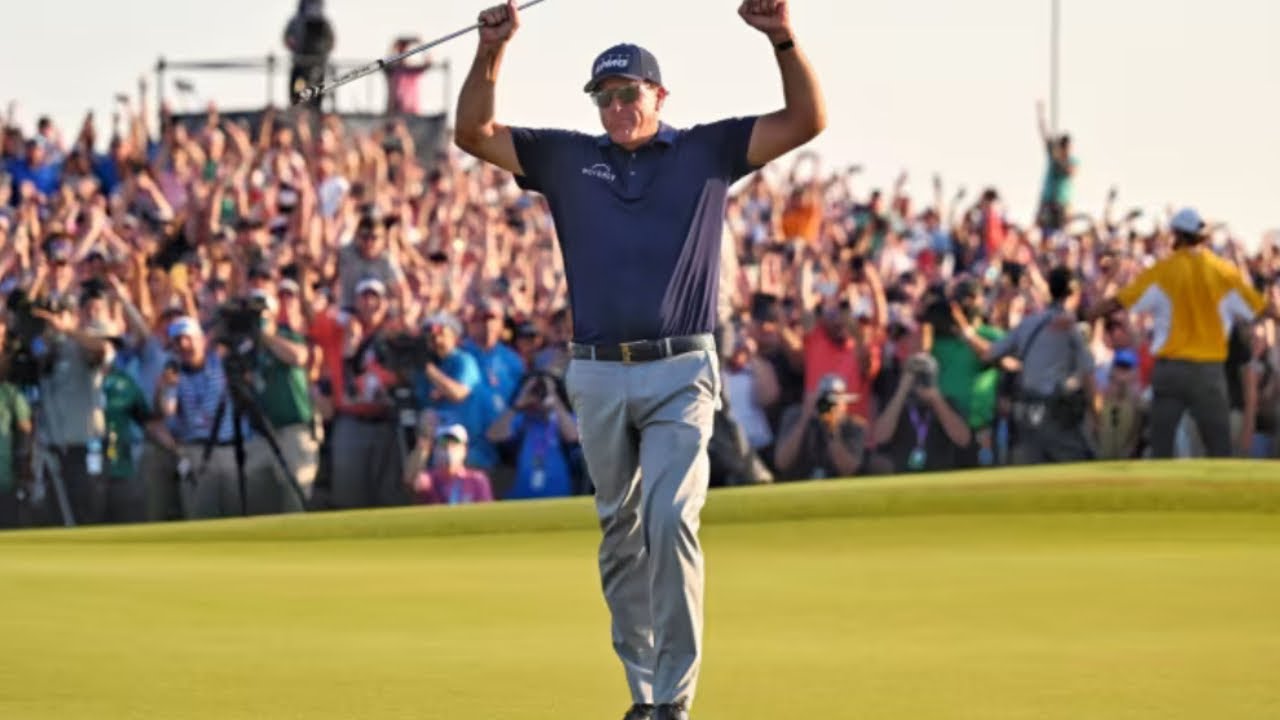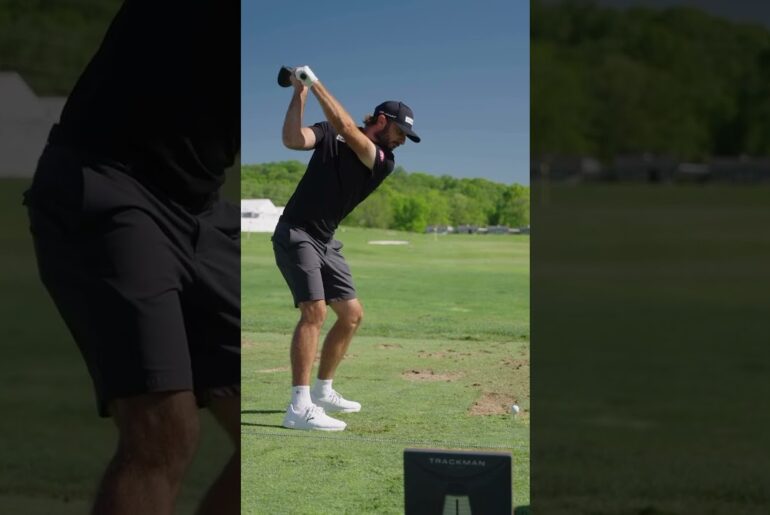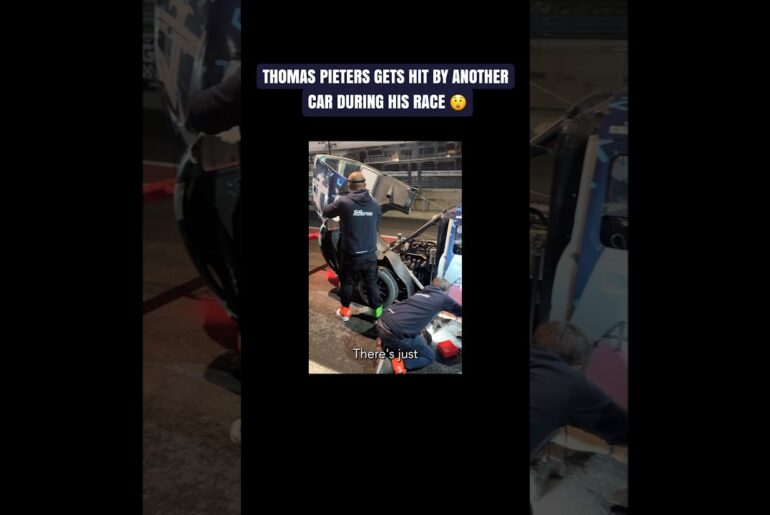These are the top 5 best finishes at the PGA Championship let us know which is your favorite and which one you think is the best!
Hit subscribe, like this video, and turn on notifications for the latest golf content!
From gut-wrenching collapses on the final hole to jaw-dropping shots that stop the world in its tracks, these are the five most insane endings in PGA Championship history. Some were brilliant displays of clutch greatness. Others were absolute meltdowns that became legendary for all the wrong reasons. Starting at number five with Justin Thomas’ historic comeback from Seven Shots Back. Coming back from seven shots down on Sunday at a major, that’s nearly unheard of. Doing it at Southern Hills, a course that punishes even the slightest mistake, that’s the stuff of legend. But in 2022, Justin Thomas pulled off one of the most dramatic comebacks in PGA Championship history. And he did it so quietly, most people didn’t realize it was happening until it was already done. Let’s go back to that Sunday morning. JT started the day seven strokes behind Meo Pereira, a Chilean rookie who had held strong all week. Pereira looked unshakable with the 54 hole lead while contenders like Willurus and Cameron Young were lurking. But it was Pereira’s tournament to lose. Meanwhile, Thomas teed off well ahead of the leaders and got straight to business. No hype, no noise, just cold, calculated golf. He birdied nine, then 11, then 12. One by one, the shots started falling and the gap slowly closed. By the time he birdied 17, he’d carted a flawless 67 and sat in the clubhouse at 5 under. And then chaos. Standing on the 18th TE with a one-shot lead, Pereira needed just a par to win his first major. But the moment swallowed him whole. He pulled driver, went for it, and pushed it straight into the creek on the right. From there, it unraveled fast. A double bogey. Playoff hopes gone. Suddenly, Justin Thomas and Wills Allurus were tied at five under. A three-hole playoff would settle it. And that’s when Thomas reminded everyone why he’s one of the best. He crushed a second shot on the first playoff hole to set up a birdie. Followed it with a steady par, then hit a beautiful iron on the final hole, landing close enough to set up another birdie. Salurus fought hard, but Thomas never flinched. As his final putt dropped, JT raised his arms in disbelief. Not because it was a shock he won, but because of how he won. No domination, no highlight reel streak, just relentless patience, smart decisions, and championship caliber composure. This wasn’t just his second PGA title. It was a masterclass in quiet resilience. For golf fans, it was the ultimate reminder, no lead is safe, and no champion is ever truly out of it. Because sometimes the loudest victories are the ones that sneak up on you. Now, at number four on our list, we have Dustin Johnson’s penalty at Whistling Straits. If there’s one way no golfer wants to lose a major, it’s not by missing a shot, but by breaking a rule they didn’t even know they’d broken. That’s exactly what happened to Dustin Johnson at the 2010 PGA Championship at Whistling Straits. One of the most controversial finishes in major history. Johnson had all the tools, monster drives, smooth power, and a calm presence under pressure. He wasn’t the favorite that Sunday, but by the time he stepped onto the 18th TE, he clawed his way to a one-shot lead. He was one hole away from his first major title, and then everything unraveled. His T-shot drifted right and settled in a patch of sand that barely looked like a bunker. Spectators had been walking through it all day. There were no rakes, no clear boundaries, just a scruffy, stomped down area right next to the crowd. To the average viewer, and even to Johnson, it looked like a standard sandy waist area. So, like any player would, he grounded his club slightly behind the ball as he got ready to swing. He hit the shot, finished the hole, and it seemed like he’d secured a playoff spot. But as he walked off the green, a rules official stopped him. There was a problem. According to the local rules at Whistling Straits, every patch of sand on the course, no matter how trampled, no matter how close to spectators, was considered a bunker. That meant grounding your club was a two-stroke penalty. Just like that, Dustin Johnson was out. From a playoff to eliminated, because of a rule very few would have even known was in play. The backlash was instant. Fans and analysts couldn’t believe it. Even fellow pros questioned how something so vague could decide a major. Johnson, to his credit, stayed composed. “It never crossed my mind that I was in a bunker,” he said afterward. “And who could blame him? Whistling Straits has over a thousand bunkers, many of them hidden, irregular, and completely unmarked.” Technically, the rule was on the books, but practically it was a nightmare waiting to happen. That moment came to define the heartbreak of Johnson’s early career. Not a collapse, not a miss, just a brutal, invisible trap that stole a major from his hands. He would go on to bounce back, winning the 2016 US Open and later the 2020 Masters. But in 2010, this sting was fresh and unforgettable because the 2010 PGA Championship didn’t end with a bad swing. It ended with a rule book. And for Dustin Johnson, it was a harsh reminder. In golf, it’s not just the shots that matter. It’s knowing exactly where you stand. If you’re enjoying this content and want to see more golf stories, please hit subscribe for more. We’re trying to hit 5,000 subscribers by the US Open. At number three, we have John Daly’s Cinderella Story. In sports, we hear the term Cinderella story all the time. But the 1991 PGA Championship wasn’t a fairy tale. It was raw, loud, and completely unexpected. And at the center of it all, a guy with a mullet, a monster swing, and zero expectations. John Dailyaly. The truth is, he wasn’t even supposed to be there. Daly was the ninth alternate for the tournament. That meant eight other players had to drop out before his name was even in the conversation. But in a bizarre twist of fate, that’s exactly what happened. When Nick Price withdrew at the last minute to be with his wife during childbirth, Daly got the call. One problem. He’d never played Crooked Stick. Hadn’t even seen it. The course was brutal, tight, demanding, the kind of place that eats rookies alive. But Daly didn’t blink. He loaded up his clubs, drove through the night, and showed up with nothing to lose and a swing that looked like it belonged on a different planet. Then he let it rip. With a back swing that nearly folded him in half and a fearless full send approach, Daly was launching drives 50 yards beyond anyone else in the field. He wasn’t just powerful, he was precise. His short game held up. His nerves didn’t crack. And the more he played, the more people took notice. By the weekend, he wasn’t just another underdog. He was the show. Fans were swarming him. The mulletwearing, Reebok rocking unknown was turning into a sensation. And on Sunday, he sealed it. Daly stayed cool under pressure and coasted to a threeshot victory at 12 under. It was one of the most unlikely wins the sport had ever seen. But here’s what made it unforgettable. He didn’t play like anyone else, and he didn’t act like anyone else either. At a time when golf still felt like a polished, exclusive club, Daly kicked the door in with a cigarette in hand and a swagger no one could ignore. He was loud, he was different, and fans loved it. Overnight, he became a phenomenon. Endorsements, interviews, magazine covers, even his own video game. But what stuck with people wasn’t the fame. It was the moment. He didn’t rise through the ranks. He didn’t wait for approval. He showed up, played his game, and rewrote what a champion could look like. The 1991 PGA Championship didn’t just introduce a new name. It launched a legend and changed the face of golf forever. Now, let’s dive into number two on our list. It’s Tiger’s win at Valhalla. By the summer of 2000, Tiger Woods wasn’t just winning. He was rewriting the definition of dominance. He had crushed the US Open by a jaw-dropping 15 shots, then claimed the open in equally historic fashion. But it was the PGA Championship at Valhalla that turned a remarkable season into something mythical and gave the world one of golf’s most unforgettable moments. Tiger entered Sunday tied with Bob May, a name most casual fans barely knew. May wasn’t flashy. He wasn’t a household name. But on this day, he wasn’t backing down. What followed was one of the greatest head-to-head battles in major championship history. Both players lit up the back nine, each firing a 31 under major pressure. That’s not just great golf. It’s unthinkable when you’re dueling Tiger Woods in his prime. Most players wilt just trying to keep up. Bob May, he matched him step for step. They came to the 18th tide and Tiger needed magic. He hid his approach to about 20 ft. A tricky downhill right to left birdie putt stood between him and the lead. Then came the moment Tiger drained the putt and immediately charged after it with that signature fist pump. Intensity blazing in his eyes. It wasn’t just a celebration. It was a declaration. That iconic walk became one of the most replayed clips in golf history. But the drama wasn’t done yet. May calmly sank a birdie of his own, sending the championship into a three-hole playoff. That’s when Tiger turned it up one more gear. He birdied the first playoff hole, took control, and never gave it back. May kept swinging, but Tiger was locked in. The win made him the first player since Ben Hogan in 1953 to capture three majors in a single season. Valhalla wasn’t just another trophy on Tiger’s shelf. It was a battlefield where greatness was tested and confirmed. His performance that day didn’t just win him a title. It carved his name deeper into golf’s legend. People still remember where they were when they saw that fist pump. For some, it was the moment they fell in love with golf. For others, it was the confirmation that they were watching something historic. This wasn’t just a PGA championship victory. This was the day the Tiger Woods era became something bigger, something eternal, as this would be his third leg of the Tiger Slam. And when he won the Masters the next year, he would claim all four majors trophies at once. A truly astonishing feat. Now, at number one on our list, we have Phil Mickelson’s win at Kiawa. Golf fans love a good underdog, but in 2021, they got something even better. A comeback for the ages from a man the world had already written off. When Phil Mickelson showed up at the Ocean Course at Kioa Island for the PGA Championship, few gave him a chance. He was 50 years old, hadn’t won a major in nearly a decade, and many believed his best golf was long behind him. But what happened over the next four days would shock the sports world in rewrite history. Kyawa is no joke. It’s one of the toughest, longest major venues ever used. The wind rips through the fairways, the bunkers are unforgiving, and the Greens can humble the best in the game. This was supposed to be a young man’s tournament. Instead, it became Phil’s stage. From day one, he looked sharp. His driver, once a wild card, was suddenly reliable. His irons were crisp, and the putter coldblooded. By the weekend, he was in the lead. Most people figured the wheels would fall off. We’ve seen it before. Older players light it up early, then fade on Sunday, but not this time. Phil wasn’t fading. He was thriving. He posted a stellar 69 on Saturday to stay on top. And when he teed it up alongside Brooks Kepkco on Sunday, nearly two decades younger, Phil made a statement early with a birdie on the par five second. Then came the moment on the fifth hole deep in the rough. Phil chipped in for Birdie and casually raised his arms like a man who’d seen it all before. It was electric. You could feel the shift. The back nine tested him. He missed fairways, made bogeies. The pressure mounted, but every time things threatened to unravel, Phil locked in. Smart shots, clutch putts, deep, steadying breaths. He didn’t panic because he’d been here before. And then the 18th hole. With a two-stroke lead, he stepped up to the tea as the crowd roared. When he walked up the fairway, it turned into pure chaos. Fans flooded onto the course, surrounding him in a wave of cheers and emotion. It looked more like a rock stars homecoming than a golf finish. When the dust settled and Phil rolled in the final putt for par, the crowd exploded. At 50 years old, Phil Mickelson had done it. Sixth major, youngest heart, oldest champion in history. It wasn’t just a win. It was a moment that transcended the sport. Not because of the number on his birth certificate, but because in a world that had already moved on, Phil reminded us all. You never count out a legend. The 2021 PGA Championship wasn’t just a surprise. It was a miracle. One final roar from a giant who refused to go quietly. Phil pulled off the stuff of legend on this Sunday. So, what do you think, golf fans? Did we get it right? What do you consider to be the most insane ending at the PGA Championship? Let us know in the comments. And if you want more golf content like this, hit like and subscribe. See you next time.








1 Comment
10:55 thank you for making this video. As someone who is just beginning to fall in love with this sport. I want you to know that for me, this video is that moment for me! Thanks for helping share golf’s history!